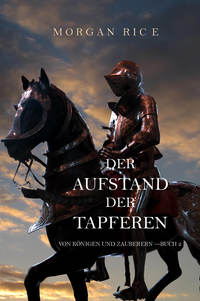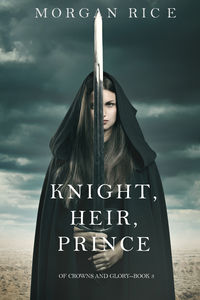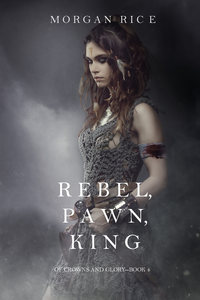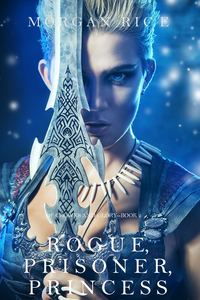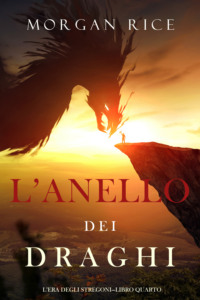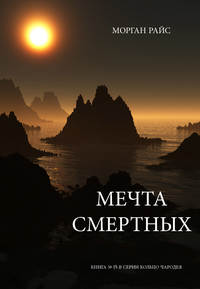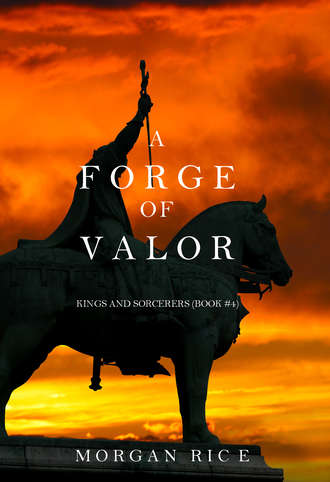
Полная версия
A Forge of Valor
The dragon knew he was dying. In a way it was a relief; soon, he would join his father.
He was awakened by the sound of rustling leaves and cracking branches and as he felt himself smashing through treetops, he finally opened his eyes. His vision was obscured in a world of green. No longer able to control himself, he felt himself tumbling, snapping branches, each snap hurting him more.
He finally came to an abrupt stop high up in a tree, stuck between branches, too weak to struggle. He hung there, immobile, in too much pain to move, each breath hurting more than the next. He was sure he would die up here, tangled in the trees.
One of the branches suddenly gave with a loud snap, and the dragon plummeted. He tumbled end over end, snapping more branches, falling a good fifty feet, until finally he hit the ground.
He lay there, feeling all his ribs cracking, breathing blood. He flapped one wing slowly, but could not do much more.
As he felt the life force leaving him, it felt unfair, premature. He knew he had a destiny, but he could not understand what it was. It appeared to be short and cruel, born in this world only to witness his father’s death, and then to die himself. Maybe that was what life was: cruel and unfair.
As he felt his eyes closing for the last time, the dragon found his mind filled with one final thought: Father, wait for me. I will see you soon.
CHAPTER SIX
Alec stood on the deck, gripping the rail of the sleek black ship, and watched the sea, as he had been for days. He watched the giant waves roll in and out, lifting their small sailing ship, and watched the foam break below the hold as they cut through water with a speed unlike anything he had ever experienced. Their ship leaned as the sails were stiff with wind, the gales strong and steady. Alec studied it with a craftsman’s eyes, wondering what this ship was made of; clearly it was crafted of an unusual, sleek material, one he had never encountered before, and it had allowed them to maintain speed all day and night, and to maneuver in the dark past the Pandesian fleet, out of the Sea of Sorrow, and into the Sea of Tears.
As Alec reflected, he recalled what a harrowing journey it had been, a journey through days and nights, the sails never lowering, the long nights on the black sea filled with hostile sounds, of the ship’s creaking, and of exotic creatures jumping and flapping. More than once he had awakened to see a glowing snake trying to board the boat, only to watch the man he was sailing with kick it off with his boot.
Most mysterious of all, more so than any of the exotic sea life, was Sovos, the man at the helm of the ship. This man who had sought Alec out at the forge, who had brought him on this ship, who was taking him to some remote place, a man Alec wondered if he were crazy to trust. Thus far, at least, Sovos had already saved Alec’s life. Alec recalled looking back at the city of Ur as they were far out at sea, feeling agony, feeling helpless, as he witnessed the Pandesian fleet closing in. From the horizon, he had seen the cannonballs crack through the air, had heard the distant rumble, had seen the toppling of the great buildings, buildings which he himself had been inside but hours before. He had tried to get off the ship, to help them all, but by then, they had been too far away. He had insisted that Sovos turn around, but his pleas had fallen on deaf ears.
Alec teared up at the thought of all his friends back there, especially Marco and Dierdre. He closed his eyes and tried, to no avail, to shake away the memory. His chest tightened as he felt he had let them all down.
The only thing keeping Alec going, that shook him from his despondency, was the sense that he was needed elsewhere, as Sovos had insisted; that he had a certain destiny, that he could use it to help destroy the Pandesians somewhere else. After all, as Sovos had said, his dying back there with the rest of them would not have helped anyone. Still, he hoped and prayed that Marco and Dierdre had survived, and that he could still return in time to reunite with them.
So curious to know where they were going, Alec had peppered Sovos with questions, yet he had remained stubbornly silent, always at the helm night and day, his back to Alec. He never, as far as Alec could tell, even slept or ate. He just stood there watching the sea in his tall leather boots and black leather coat, his scarlet silks draped over his shoulder, wearing a cape with its curious insignia. With his short, brown beard and flashing green eyes that stared at the waves as if they were one with them, the mystery around him only deepened.
Alec stared out at the unusual Sea of Tears, with its light aqua color, and he felt overcome with an urgency to know where he was being taken. Unable to stand the silence any longer, he turned to Sovos, desperate for answers.
“Why me?” Alec asked, breaking the silence, trying yet again, determined this time for an answer. “Why choose me from that entire city? Why was I the one meant to survive? You could have saved a hundred people more important than me.”
Alec waited, but Sovos remained silent, his back to him, studying the sea.
Alec decided to try another route.
“Where are we going?” Alec asked yet again. “And how is this ship able to sail so fast? What is it made of?”
Alec watched the man’s back. Minutes passed.
Finally, the man shook his head, his back still turned.
“You are going where you are meant to go, where you are meant to be. I chose you because we need you, and no other.”
Alec wondered.
“Need me for what?” Alec pressed.
“To destroy Pandesia.”
“Why me?” Alec asked. “How can I possibly help?”
“All will be clear once we arrive,” Sovos replied.
“Arrive where?” Alec pressed, frustrated. “My friends are in Escalon. People I love. A girl.”
“I am sorry,” Sovos sighed, “but no one is left back there. All that you once knew and loved is gone.”
There came a long silence, and amidst the whistling of the wind, Alec prayed he was wrong—yet deep down he felt he was right. How could life change so quickly? he wondered.
“Yet you are alive,” Sovos continued, “and that is a very precious gift. Do not squander it. You can help many others, if you pass the test.”
Alec furrowed his brow.
“What test?” he asked.
Sovos finally turned and looked at him, his eyes piercing.
“If you are the one,” he said, “our cause will fall on your shoulders; if not, we shall have no use for you.”
Alec tried to understand.
“We’ve been sailing for days now and have gotten nowhere,” Alec observed. “Just deeper into the sea. I can’t even see Escalon anymore.”
The man smirked.
“And where do you think we’re going?” he asked.
Alec shrugged.
“It appears we sail northeast. Perhaps somewhere toward Marda.”
Alec studied the horizon, exasperated.
Finally, Sovos replied.
“How wrong you are, young one,” he replied. “How wrong indeed.”
Sovos turned back to the helm as a strong gust of wind rose up, the boat riding into the whitecaps of the ocean. Alec look beyond him, and as he did, for the first time, he was startled to spot a shape on the horizon.
He hurried forward, filled with excitement as he gripped the rail.
In the distance there slowly emerged a landmass, just beginning to take shape. The land seemed to sparkle, as if made of diamonds. Alec raised a hand to his eyes, peering, wondering what it could possibly be. What island could exist out here in the middle of nowhere? He wracked his brain, but could remember no land on the maps. Was it some country he had never heard of?
“What is it?” Alec asked in a rush, staring out in anticipation.
Sovos turned, and for the first time since Alec had met him, he smiled wide.
“Welcome, my friend,” he said, “to the Lost Isles.”
CHAPTER SEVEN
Aidan stood bound to a post, unable to move, while he watched his father, kneeling a few feet before him, flanked by Pandesian soldiers. They stood, swords raised, holding them over his head.
“NO!” Aidan shrieked.
He tried to break free, to rush forward and spare his father, yet no matter how hard he tried, he could not budge, the ropes digging into his wrists and ankles. He was forced to watch as his father knelt there, eyes filled with tears, looking to him for help.
“Aidan!” his father called, reaching a hand out for him.
“Father!” Aidan called back.
The blades came down, and a moment later, Aidan’s face was splattered in blood as they chopped off his father’s head.
“NO!” Aidan shrieked, feeling his own life collapse within him, feeling himself sinking into a black hole.
Aidan woke with a start, gasping, covered in a cold sweat. He sat up in the darkness, struggling to realize where he was.
“Father!” Aidan yelled, still half asleep, looking for him, still feeling an urgency to save him.
He looked all around, felt something in his face and hair, all over his body, and realized it was hard to breathe. He reached out, pulled something light and long off his face, and he realized he was lying in a pile of hay, nearly buried in it. He quickly brushed it all off as he sat up.
It was dark in here, only the faint flicker of a torch appearing through slats, and he soon realized he was lying in the back of a wagon. Beside him came a rustling, and he looked over and saw with relief that it was White. The huge dog jumped up in the wagon beside him and licked his face, while Aidan hugged him back.
Aidan breathed hard, still overwhelmed by the dream. It had seemed too real. Had his father really been killed? He tried to think back to when he had last seen him, in the royal courtyard, ambushed, surrounded. He recalled trying to help, and then being whisked away by Motley in the thick of night. He recalled Motley putting him on this wagon, their riding through the backstreets of Andros to get away.
That explained the wagon. But where had they gone? Where had Motley taken him?
A door opened, and a sliver of torchlight lit up the dark room. Aidan was finally able to see where he was: a small stone room, the ceiling low and arched, looking like a small cottage or tavern. He looked up to see Motley standing in the doorway, framed in the torchlight.
“Keep yelling like that and the Pandesians will find us,” Motley warned.
Motley turned and walked out, returning to the well-lit room in the distance, and Aidan quickly hopped down from the wagon and followed, White at his side. As Aidan entered the bright room, Motley quickly closed the thick oak door behind him and bolted it several times.
Aidan looked out, eyes adjusting to the light, and recognized familiar faces: Motley’s friends. The actors. All those entertainers from the road. They were all here, all hiding away, boarded up in this windowless, stone pub. All the faces, once so festive, were now grim, somber.
“Pandesians are everywhere,” Motley said to Aidan. “Keep your voice down.”
Aidan, embarrassed, hadn’t even realized he was shouting.
“Sorry,” he said. “I had a nightmare.”
“We all have nightmares,” Motley replied.
“We’re living in one,” added another actor, his face glum.
“Where are we?” Aidan asked, looking around, puzzled.
“A tavern,” Motley replied, “at the farthest corner of Andros. We are still in the capital, hiding out. The Pandesians patrol outside. They’ve walked by several times, but they haven’t come in—and they won’t, as long as you keep quiet. We’re safe here.”
“For now,” called out one of his friends, skeptical.
Aidan, feeling an urgency to help his father, tried to remember.
“My father,” he said. “Is he…dead?”
Motley shook his head.
“I don’t know. He was taken. That was the last I saw him.”
Aidan felt a flush of resentment.
“You took me away!” he said angrily. “You shouldn’t have. I would have helped him!”
Motley rubbed his chin.
“And how would you have managed that?”
Aidan shrugged, wracking his brain.
“I don’t know,” he replied. “Somehow.”
Motley nodded.
“You would have tried,” he agreed. “And you would be dead now, too.”
“Is he dead then?” Aidan asked, feeling his heart wrench within him.
Motley shrugged.
“Not when we left,” Motley said. “I just do not know now. We have no friends, no spies, in the city anymore—it has been overtaken by Pandesians. All your father’s men are imprisoned. We are, I’m afraid, at Pandesia’s mercy.”
Aidan clenched his fists, thinking only of his father rotting in that cell.
“I must save him,” Aidan declared, filled with a sense of purpose. “I cannot let him sit there. I must leave this place at once.”
Aidan jumped up and hurried to the door and had started pulling back the bolts when Motley appeared, stood over him, and stuck his foot before the door before he could open it.
“Go now,” Motley said, “and you’ll get us all killed.”
Aidan looked back at Motley, saw a serious expression for the first time, and he knew he was right. He had a new sense of gratitude and respect for him; after all, he had indeed saved his life. Aidan would always be grateful for that. Yet at the same time, he felt a burning desire to rescue his father, and he knew that every second counted.
“You said there would be another way,” Aidan said, remembering. “That there would be another way to save him.”
Motley nodded.
“I did,” Motley admitted.
“Were those just empty words, then?” Aidan asked.
Motley sighed.
“What do you propose?” he asked, exasperated. “Your father sits in the heart of the capital, in the royal dungeon, guarded by the entire Pandesian army. Shall we just go and knock on the door?”
Aidan stood there, trying to think of anything. He knew it was a daunting task.
“There must be men who can help us?” Aidan asked.
“Who?” called out one of the actors. “All those men loyal to your father were captured along with him.”
“Not all,” Aidan replied. “Surely some of his men were not there. What about the warlords loyal to him outside the capital?”
“Perhaps.” Motley shrugged. “But where are they now?”
Aidan fumed, desperate, feeling his father’s imprisonment as if it were his own.
“We can’t just sit here and do nothing,” Aidan exclaimed. “If you don’t help me, I will go myself. I don’t care if I die. I cannot just sit here while my father’s in prison. And my brothers…” Aidan said, remembering, and he began to cry, overcome with emotion, as he recalled his two brothers’ deaths.
“I have no one now,” he said.
Then he shook his head. He remembered his sister, Kyra, and he prayed with all he had that she was safe. After all, she was all he had now.
As Aidan cried, embarrassed, White came over and rested his head against his leg. He heard heavy footsteps crossing the creaky, wooden plank floors, and he felt a big beefy palm on his shoulder.
He looked up and saw Motley looking down with compassion.
“Wrong,” Motley said. “You have us. We are your family now.”
Motley turned and gestured to the room, and Aidan looked out and saw all the actors and entertainers looking back at him earnestly, dozens of them, compassion in their eyes as they nodded in agreement. He realized that, even though they were not warriors, they were good-hearted people. He had a new respect for them.
“Thank you,” Aidan said. “But you are all actors. What I need are warriors. You cannot help me get back my father.”
Motley suddenly had a look in his eyes, as if an idea were dawning, and he smiled wide.
“How wrong you are, young Aidan,” he replied.
Aidan could see Motley’s eyes gleaming, and he knew he was thinking of something.
“Warriors have a certain skill,” Motley said, “yet entertainers have a skill of their own. Warriors can win by force—but entertainers can win by other means, means even more powerful.”
“I do not understand,” Aidan said, confused. “You can’t entertain my father out of his jail cell.”
Motley laughed aloud.
“In fact,” he replied, “I think I can.”
Aidan looked back, puzzled.
“What do you mean?” he asked.
Motley rubbed his chin, his eyes drifting, clearly hatching a plan.
“Warriors are not allowed to walk freely in the capital now—or go anywhere near the city center. Yet entertainers have no restrictions.”
Aidan was confused.
“Why would Pandesia let entertainers into the heart of the capital?” Aidan asked.
Motley smiled and shook his head.
“You still don’t know how the world works, boy,” Motley replied. “Warriors are always only allowed in limited places, and at limited times. But entertainers—they are allowed everywhere, at all times. Everybody always needs to be entertained, Pandesians as much as Escalonites. After all, a bored soldier is a dangerous soldier, on either side of the kingdom, and rule of order must be maintained. Entertainment has always been the key to keeping troops happy, and to controlling an army.”
Motley smiled.
“You see, young Aidan,” he said, “it is not the commanders who hold the keys to their armies, but us. Mere, old entertainers. Those of the class you despise so much. We rise above battle, cut across enemy lines. No one cares what armor I’m wearing—they care only how good my tales are. And I have fine tales, boy, finer than you shall ever know.”
Motley turned to the room and boomed:
“We shall perform a play! All of us!”
All the actors in the room suddenly cheered, brightened, rising to their feet, hope returning to their dejected eyes.
“We shall perform our play right in the heart of capital! It shall be the greatest entertainment these Pandesians have ever seen! And more importantly, the greatest distraction. When the time is right, when the city is in our hands, captivated by our great performance, we shall act. And we shall find a way to free your father.”
The men cheered and Aidan, for the first time, felt his heart warming, felt a new sense of optimism.
“Do you really think it will work?” Aidan asked.
Motley smiled.
“Crazier things, my boy,” he said, “have happened.”
CHAPTER EIGHT
Duncan tried to blot out the pain as he drifted in and out of sleep, lying back against the stone wall, the shackles cutting into his wrists and ankles and keeping him awake. More than anything, he craved water. His throat was so parched, he couldn’t swallow, so raw that each breath hurt. He could not remember how many days it had been since he’d had a sip, and he felt so weak from hunger he could barely move. He knew he was wasting away down here, and that if the executioner didn’t come for him soon, then hunger would take him.
Duncan drifted in and out of consciousness, as he had for days, the pain overwhelming him, becoming a part of who he was. He had flashes of his youth, of times spent in open fields, on training grounds, in battlefields. He had memories of his first battles, of days gone by, when Escalon was free and flourishing. These were always interrupted, though, by the faces of his two dead boys, rising up before him, haunting him. He was torn apart by agony, and he shook his head, trying unsuccessfully to make it all go away.
Duncan thought of his last remaining son, Aidan, and he desperately hoped he was safe back in Volis, that the Pandesians had not reached it yet. His mind then turned to thoughts of Kyra. He remembered her as a young girl, recalled the pride he had always taken in raising her. He thought of her journey across Escalon and he wondered if she had reached Ur, if she had met her uncle, if she was safe now. She was a part of him, the only part of him that mattered now, and her safety mattered more to him than being alive. Would he ever see her again? he wondered. He craved to see her, yet he also wanted her to remain far from here, and safe from all of this.
The cell door slammed open, and Duncan looked up, startled, as he peered into the darkness. Boots marched in the blackness, and as he listened to the gait, Duncan could tell they were not Enis’s boots. In the darkness, his hearing had grown more acute.
As the soldier approached, Duncan figured he was coming to torture or kill him. Duncan was ready. They could do with him as they pleased—he had already died inside.
Duncan opened his eyes, heavy as they were, and looked up with whatever dignity he could muster to see who was coming. There, he was shocked to see, was the face of the man he despised the most: Bant of Barris. The traitor. The man who had killed his two sons.
Duncan glowered back as Bant stepped forward, a satisfied smirk on his face, and knelt before him. He wondered what this creature could possibly be doing here.
“Not so powerful now, are you, Duncan?” Bant asked, just feet away. He stood there, hands on hips, short, stocky, with narrow lips, beady eyes and a pockmarked face.
Duncan tried to lunge forward, wanting to tear him apart—but his chains held him back.
“You shall pay for my boys,” Duncan said, choking up, his throat so dry he couldn’t get out the words with the venom he wished.
Bant laughed, a short, crude sound.
“Shall I?” he mocked. “You’ll be breathing your last dying breath down here. I killed your sons, and I can kill you, too, if I choose. I have the backing of Pandesia now, after my display of loyalty. But I shall not kill you. That would be too kind. Better to let you waste away.”
Duncan felt a cold rage bubbling up within him.
“Then why you have come?”
Bant darkened.
“I can come for any reason I wish,” he scowled, “or for no reason at all. I can come just to look at you. To gape at you. To see the fruits of my victory.”
He sighed.
“And yet it so happens, I have a reason to visit you. There is something I wish from you. And there is one thing I am going to give you.”
Duncan looked back skeptically.
“Your freedom,” Bant added.
Duncan watched him, wondering.
“And why would you do that?” he asked.
Bant sighed.
“You see, Duncan,” he said, “you and I are not so different. We are both warriors. In fact, you are a man I’ve always respected. Your sons deserved to be killed—they were reckless blowhards. But you,” he said, “I’ve always respected. You should not be down here.”
He paused, examining him.
“So this is what I will do,” he continued. “You will publicly confess your crimes against our nation, and you shall exhort all citizens of Andros to concede to Pandesian rule. If you do this, then I shall see that Pandesia sets you free.”
Duncan sat there, so furious he didn’t know what to say.
“Are you a puppet for the Pandesians now?” Duncan finally asked, seething. “Are you trying to impress them? To show them that you can deliver me?”
Bant sneered.
“Do it, Duncan,” he replied. “You are no good to anyone down here, least of all yourself. Tell the Supreme Ra what he wants to hear, confess what you’ve done, and make peace for this city. Our capital needs peace now, and you are the only who can make it.”
Duncan took several deep breaths, until he finally summoned the strength to speak.
“Never,” he replied.
Bant glowered.
“Not for my freedom,” Duncan continued, “not for my life, and not for any price.”
Duncan stared at him, smiling in satisfaction as he watched Bant redden, then finally he added: “But be sure of one thing: if I ever escape from here, my sword will find a spot in your heart.”
After a long, stunned silence, Bant stood, scowling, stared down at Duncan, and shook his head.
“Live a few more days for me,” he said, “so that I can be here to watch your execution.”
CHAPTER NINE
Dierdre rowed with all her might, Marco beside her, the two of them swiftly cutting through the canal, making their way back toward the sea, where she had last seen her father. Her heart was torn apart with anxiety as she recalled the last time she had seen her father, recalled his bravely attacking the Pandesian army, even against insurmountable odds. She closed her eyes and shook away the image, rowing even faster, praying he was not dead yet. All she wanted was to make it back in time to save him—or if not, then to at least have a chance to die by his side.
Beside her, Marco rowed just as quickly, and she looked over at him with gratitude and wonder.
“Why?” she asked.
He turned and looked at her.


